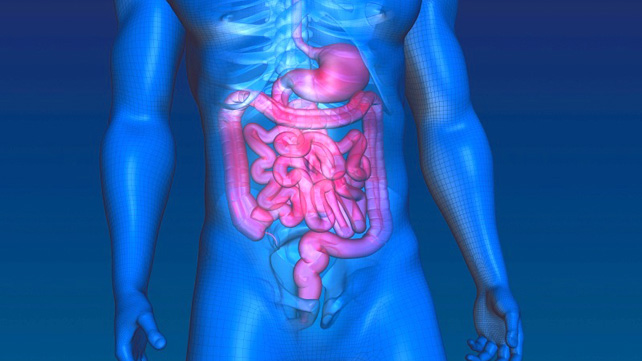 iStock
iStock
Crohn’s disease is an autoimmune disorder that affects the gastrointestinal (GI) tract. Crohn’s disease causes parts of the GI tract to become inflamed. It can affect any part of the GI tract, but it’s usually found in the colon. Ulcers (sores or lesions), fistulas (openings), or cracks can develop in the intestines. These problems can block the passage of food and waste.
Crohn’s is a chronic disease. There is no cure. However, medications are available to help manage the symptoms and prevent relapse.
Aminosalicylates
If you have mild or moderate Crohn’s, your doctor will likely prescribe aminosalicylates. These drugs can reduce inflammation and ease symptoms. Sulfasalazine (Azulfidine) andmesalamine (Asacol) are the most commonly prescribed medications. Olsalazine (Dipentum) and (Colazal) are two other medications that have been developed.
Doctors normally prescribe these types of medications as long-term therapy. They help keep Crohn’s in remission. These medications can be taken as a suppository, by mouth, or as a combination of both. How you take the drug depends on where the disease affects your body.
The side effects of aminosalycylates include:
- nausea
- vomiting
- heartburn
- diarrhea
- headache
If you take these medications, your doctor may monitor your kidney function. They may also order blood tests to make sure your white blood cell level isn’t too low. Let your doctor know if you’re allergic to sulfa drugs before taking any aminosalicylate drug.
Corticosteroids
Corticosteroids help reduce inflammation. Doctors prescribe corticosteroids for short-term relief of symptoms. Budesonide (Pulmicort) is usually used for mild and moderate cases of Crohn’s disease. If you have a more serious case of Crohn’s, or if budesonide doesn’t work for you, your doctor may prescribe prednisone or methylprednisolone.
The side effects of corticosteroids can include:
- glaucoma or increased pressure in your eyes
- swelling
- high blood pressure
- weight gain
Serious side effects can occur if you take corticosteroids for more than three months. Because of this, your doctor may keep you on corticosteroids for only a certain period of time. After that, your doctor may prescribe methotrexate. It can help you stay in remission. It also helps reduce the withdrawal symptoms from prednisone.
Serious side effects from corticosteroids can include:
- loss of bone density (osteoporosis)
- liver issues
Your doctor may also prescribe calcium and vitamin D supplements. These can help prevent bone loss if you’re taking a corticosteroid for a long time.
Immunomodulators and immunosuppressive medications
Researchers believe Crohn’s disease is caused by a problem with the immune system. Cells that normally protect your body attack the GI tract. Because of this, medications that suppress or regulate your immune system can help treat Crohn’s.
Doctors may prescribe these types of medications if aminosalicylates and corticosteroids don’t work or if you develop fistulas. These medications can help your disease stay in remission. They may also heal fistulas.
Some common immunosuppressive medications include:
- azathioprine (Imuran)
- mercaptopurine(Purinethol)
- cyclosporine (Gengraf, Neoral, Sandimmune)
- methotrexate (Rheumatrex)
The side effects of these medications can include:
- headache
- nausea
- vomiting
- diarrhea
Because these drugs suppress the immune system, they may affect how well your body can fight infections. Some rare side effects are pancreatitis (inflammation of the pancreas), liver problems, and myelosuppression. Myelosuppression is a decrease in the amount of bone marrow you make.
Biologics
Biologics are a type of drug used for people with moderate to severe Crohn’s or active Crohn’s. Your doctor may prescribe biologics if you have moderate or severe symptoms or if your other drugs aren’t working. They may also prescribe them if you have openings, called fistulas, in your GI tract. Biologics can also help ease you off of steroid medications.
These medications are given by intravenous (IV) injection on a regular basis. They work to reduce inflammation in specific areas, such as the lining of your intestines. They don't suppress your whole immune system.
The most common biologic drugs include:
- infliximab (Remicade)
- adalimumab (Humira)
- certolizumab pegol (Cimzia)
- natalizumab (Tysabri)
- vedolizumab (Entyvio)
You may have redness, swelling, or irritation where you received the injection. You may also experience:
- headaches
- fever
- chills
- low blood pressure
In rare cases, some people have gotten severe infections or tuberculosis (TB) after receiving this treatment. Before you take these medications, your healthcare provider will test you for TB.
Other medications
Doctors may prescribe additional medications to help with other symptoms of Crohn’s. Antibiotics can prevent abscesses and overgrowth of bacteria in the intestines. Your doctor may also prescribe an antidiarrheal drug if you have severe diarrhea.
Some people with Crohn’s are at risk of developing blood clots or other blood conditions, such as anemia. In the case of blood clots, your doctor may prescribe heparin. This is a blood thinner that prevents clots. If you show signs of anemia, your doctor may prescribe iron supplements or vitamin B-12 shots.
Talk to your doctor
As with any drug treatment plan, you should work closely with your doctor and follow their medication instructions. Talk with your doctor. You can discuss this article and ask any questions you have. Together, you and your doctor will find the right treatment for you.



